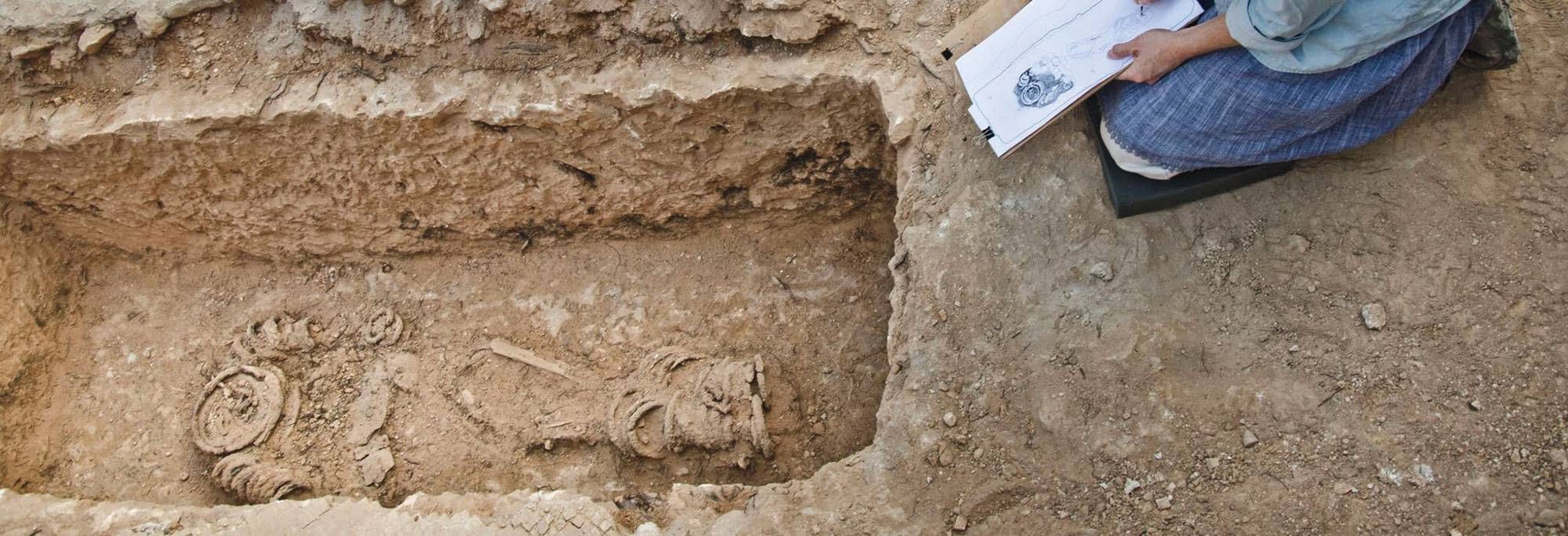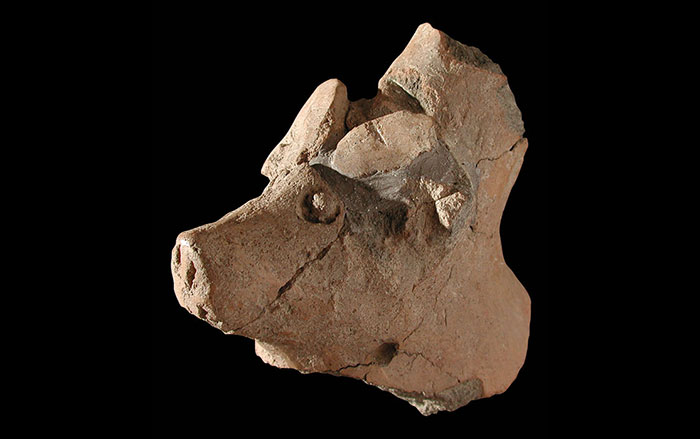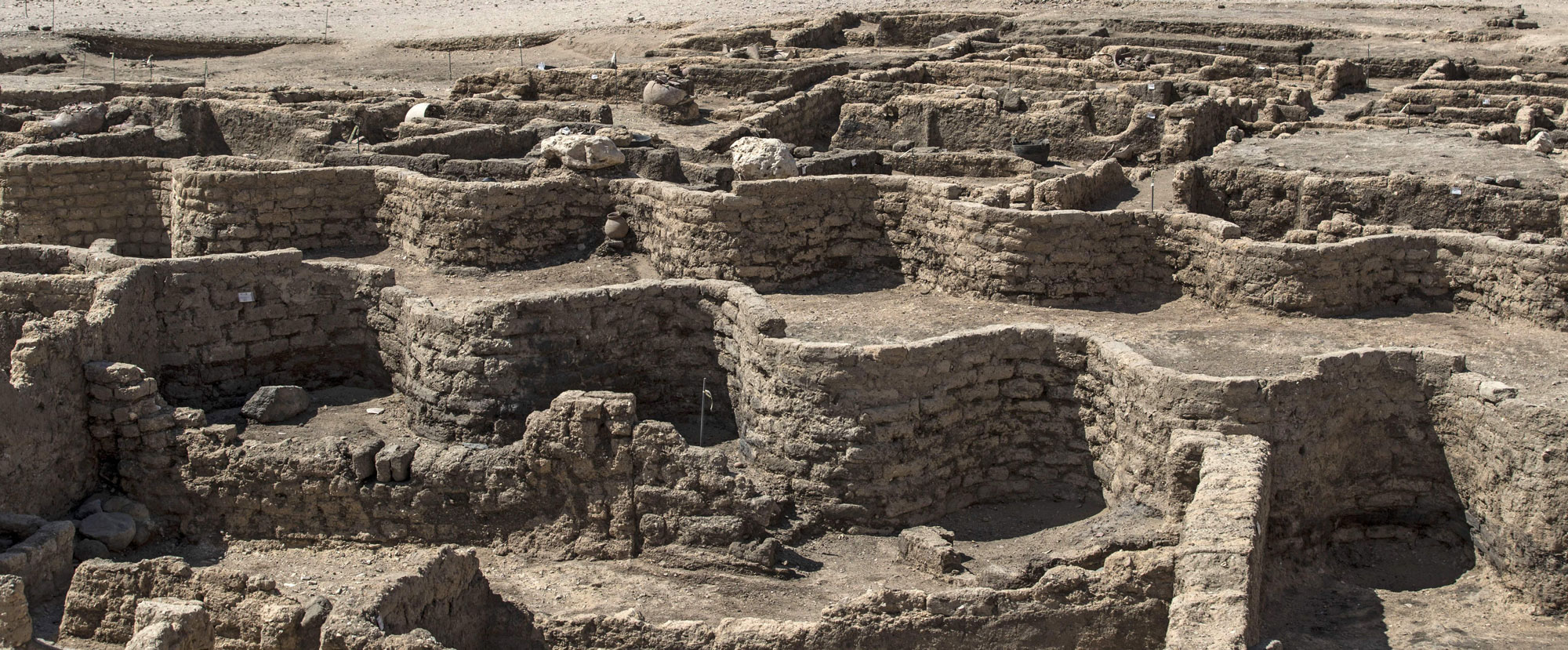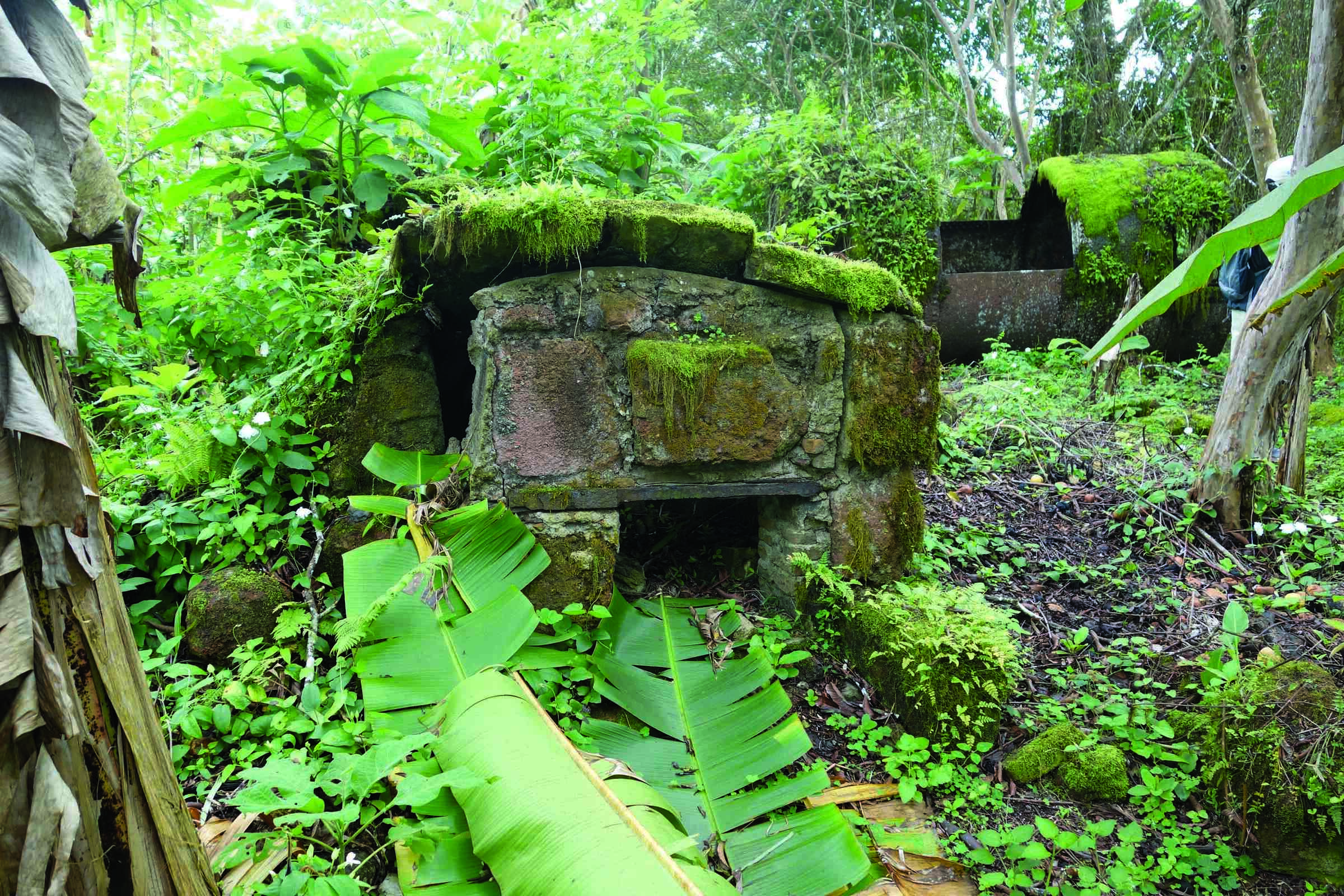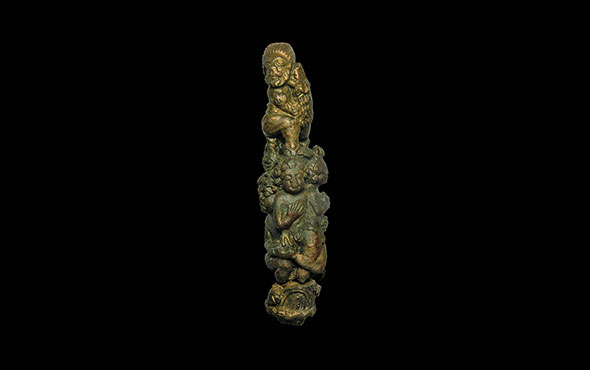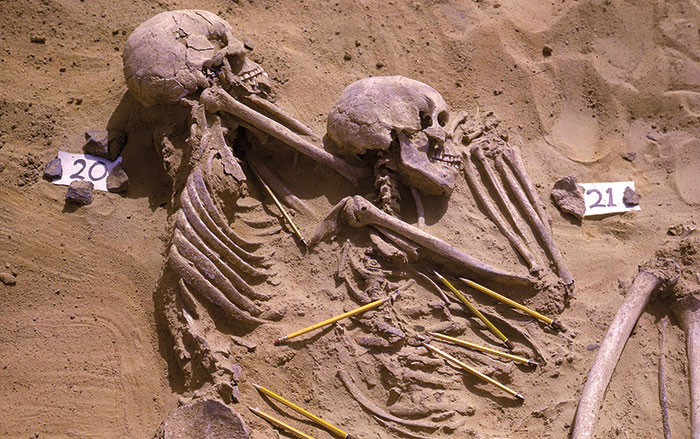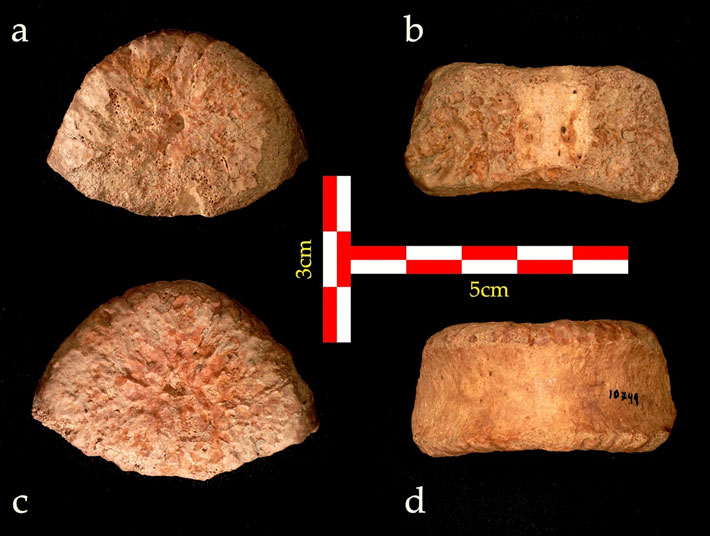
TEL AVIV, ISRAEL—Cosmos Magazine reports that a vertebra unearthed at the site of ‘Ubeidiya, which is located in the Jordan Valley, has been dated to 1.5 million years ago. When compared to the remains of other early humans, the fossil is evidence of human dispersal out of Africa in successive waves, rather than as a single event, according to Alon Barash of Bar-Ilan University. Palaeoanthropologist Ella Been of Ono Academic College suggests that the bone belonged to a male child between six and 12 years of age who stood about 70 inches tall, making him relatively tall when compared to the 1.8-million-year-old remains of early humans found at the Dmanisi site in Georgia. “Due to the difference in size and shape of the vertebra from ‘Ubeidiya and those found in the Republic of Georgia, we now have unambiguous evidence of the presence of [at least] two distinct dispersal waves,” Barash said. The two species also produced different stone tools, and lived in different types of habitats, he added. Read the original scholarly article about this research in Scientific Reports. For more on the hominin remains found at Dmanisi , go to "Homo erectus Stands Alone," one of ARCHAEOLOGY's Top 10 Discoveries of 2013.



